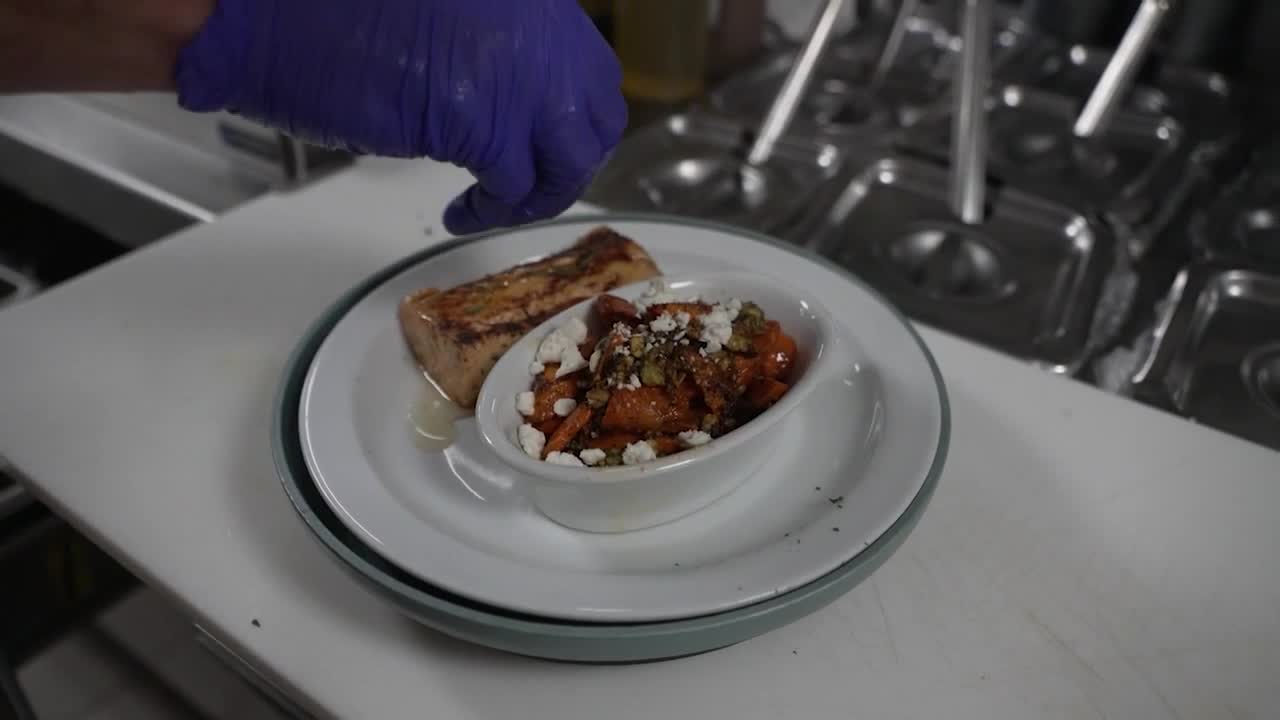LAFAYETTE, Colo. — According to the Academy of Nutrition and Dietetics, between 30 and 50 percent of hospitalized adults aged 60 and up are admitted already suffering from some level of malnutrition.
With Colorado's aging population on the rise, the need for nutritional care in healthcare environments is becoming more urgent.
At Intermountain Health Good Samaritan, their approach is challenging the stereotype of bland, uninspired hospital meals.
Regional Executive Chef Joseph Westley and his culinary team are serving up restaurant-quality dishes tailored to help patients heal, inside and out.

“It’s something you just generally don’t hear a hospital talking about,” Westley said. “We work with dietitians to make sure the entrees we’re giving you do give you energy, make you feel good, and — most importantly — taste good and look good.”
Chefs at Good Samaritan make almost everything from scratch, controlling sodium levels and eliminating preservatives, while still presenting meals that are visually inviting and flavorful. The result is food that not only meets strict nutrition guidelines, but also entices patients to eat — a key to fighting malnutrition.
“When you’re eating something that tastes good, it helps you feel better,” Westley said. “Food gives you energy and is part of the medicine and the healing process.”

Registered dietitian Candace Johnson agreed. After decades working with older adults, Johnson said 25 to 50 percent of her patients experienced some level of malnutrition.
“Hospitals have the challenge of serving quality food because people don’t eat well when they’re not feeling well,” Johnson said. “We know, by science, what older patients need for protein, macronutrients and micronutrients. Our menus are written to meet those levels, but it’s about making it delicious and visually appealing. You eat with your eyes, how it’s presented.”
Johnson says having executive chefs create palatable, satisfying plates in healthcare settings makes a significant impact on older adults’ nutrition. “We want people to eat to prevent malnutrition. Chefs have a vital role in that.”
Chefs can also help dispel myths about nutrition and older adults, Johnson said. “There's some myths with elderly nutrition that chefs can overcome. One is salt. [People say] 'you can’t use salt,' but a salt makes things taste better. You can use a little salt.”

Westley’s team focuses on preparing dishes that are nutritious but also tailored for those with unique needs, such as smooth, lump-free mashed potatoes and flavorful, easy-to-swallow butternut squash mash. Menu decisions are made in collaboration with dietitians to ensure each patient receives meals suited to their health requirements.
“We’re trying to heal you, but also show you that you can have great food and be healed at the same time,” Westley said.
As families visit their loved ones, many comment on the quality and variety of food—a testament to the role the culinary experience now plays in recovery. Good meals impact more than just patients.
In hospitals like Intermountain Health Good Samaritan, good food and good health go hand in hand, aiming for a future where older adults receive the nutrition—and the pleasure—of a meal worth savoring.






